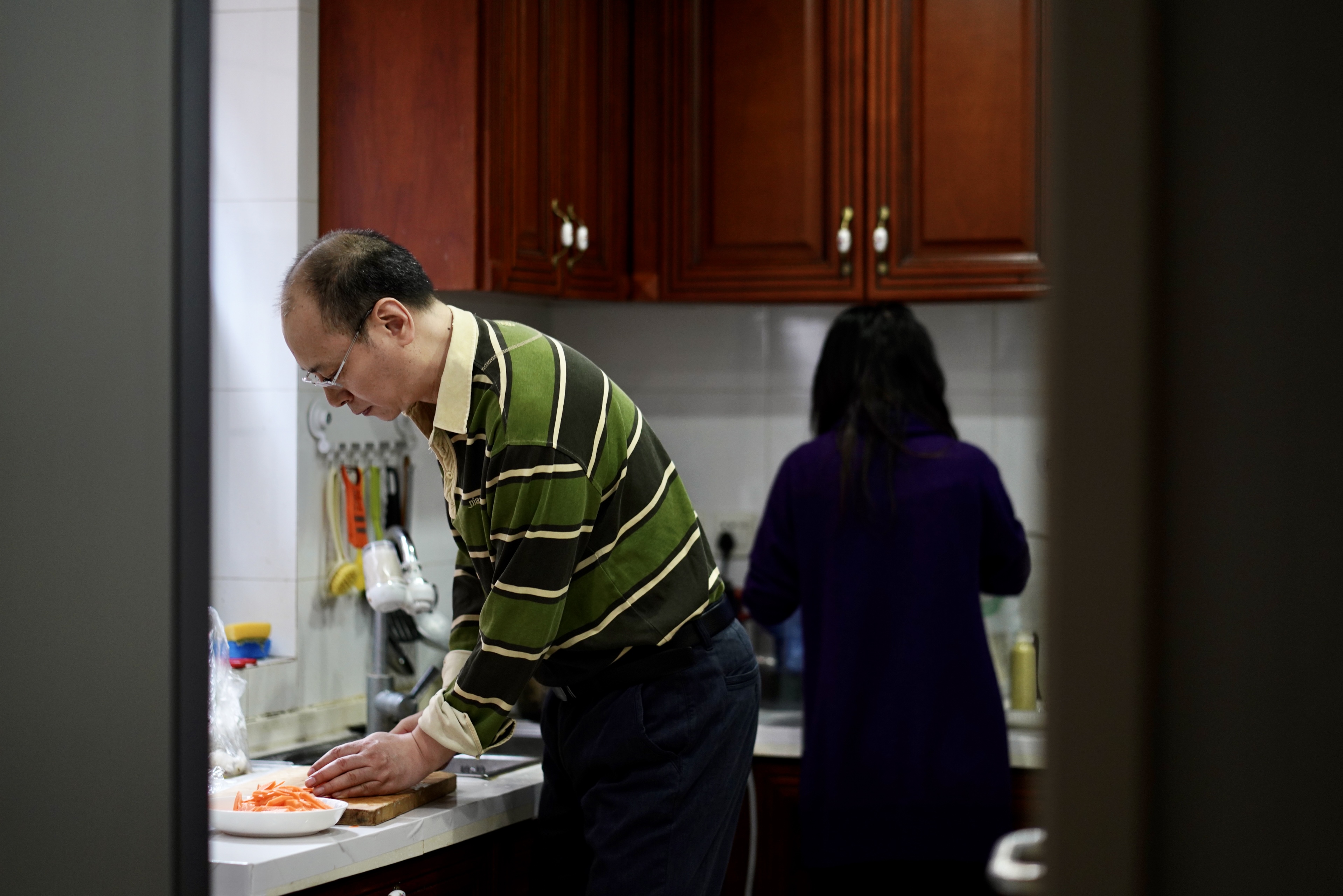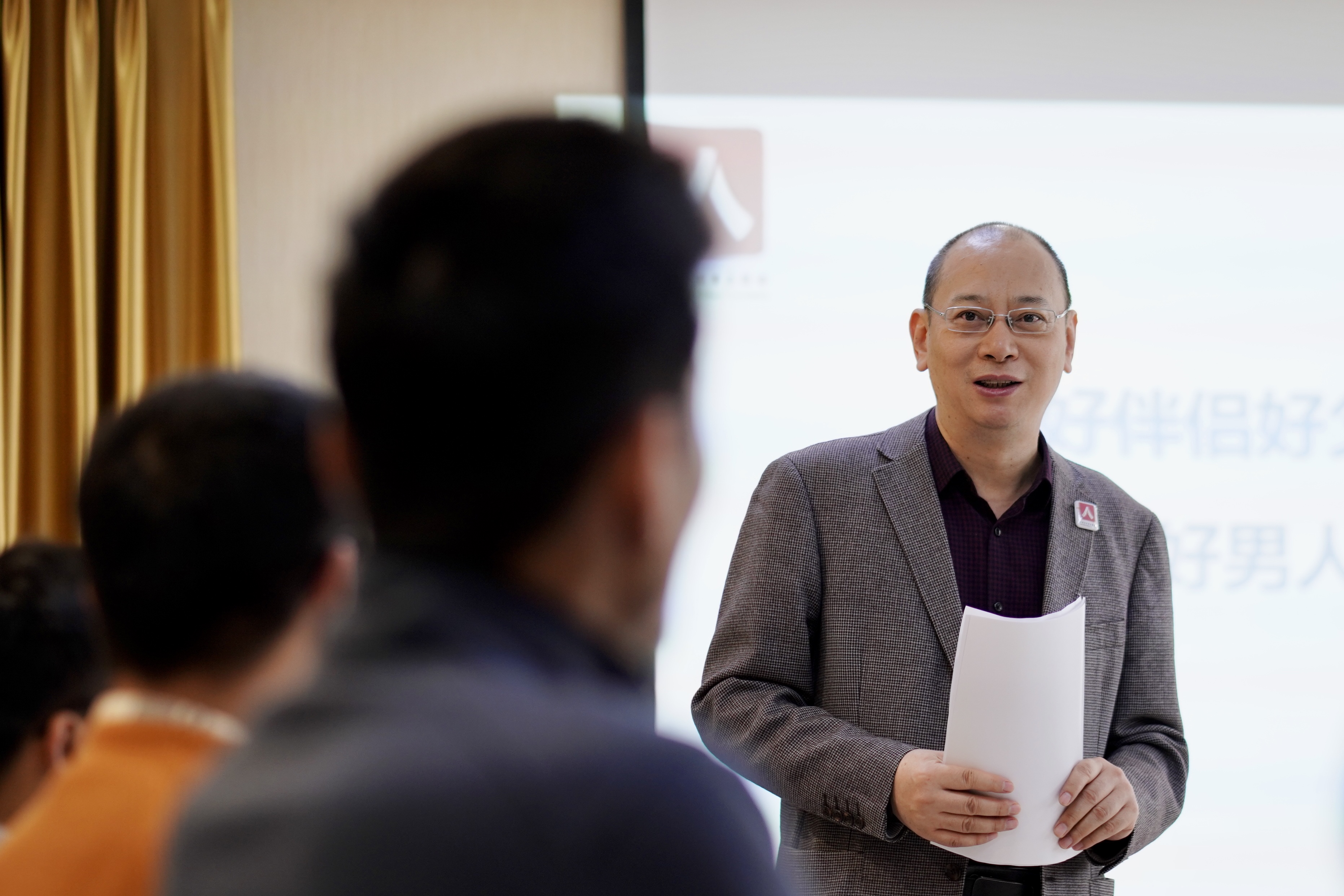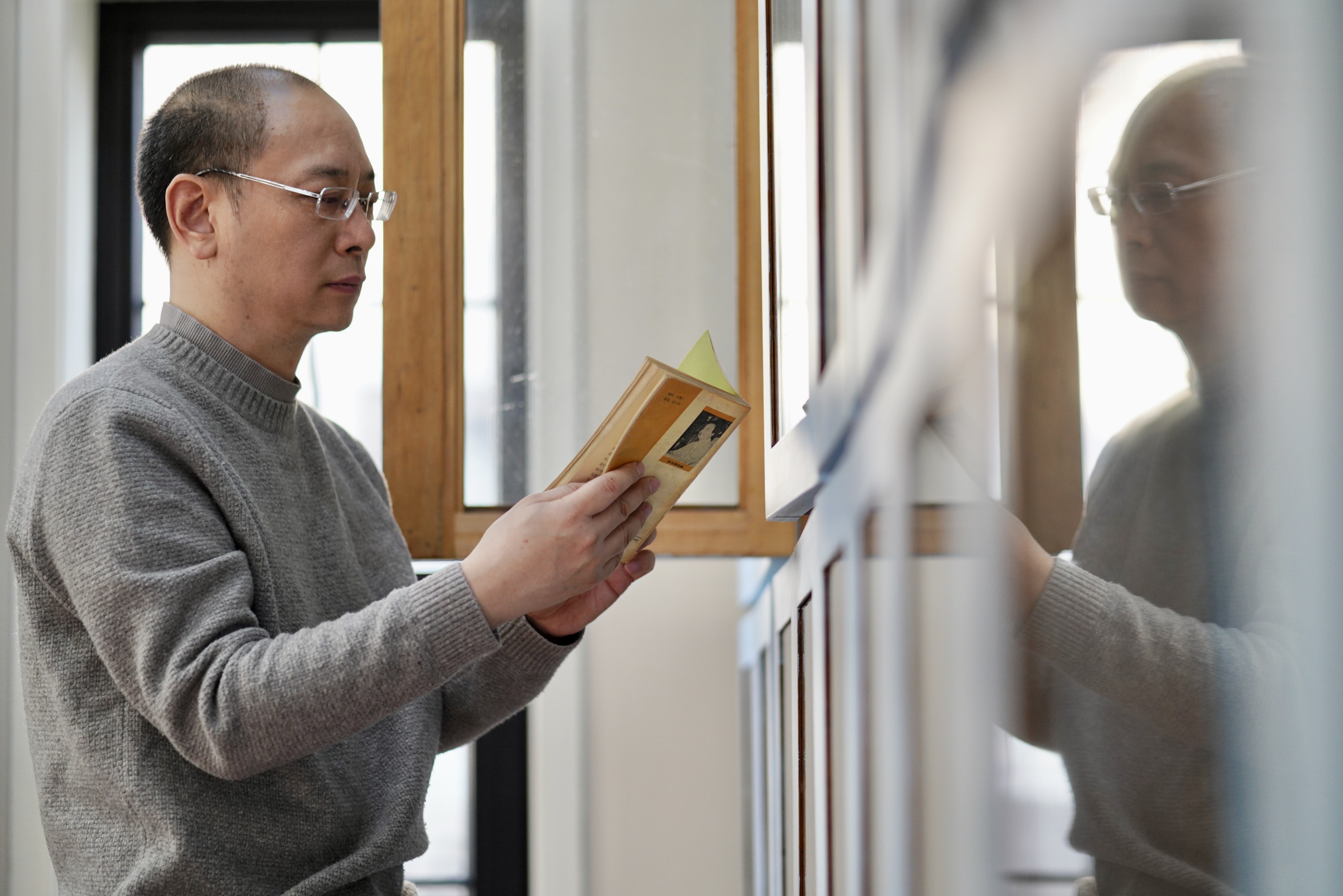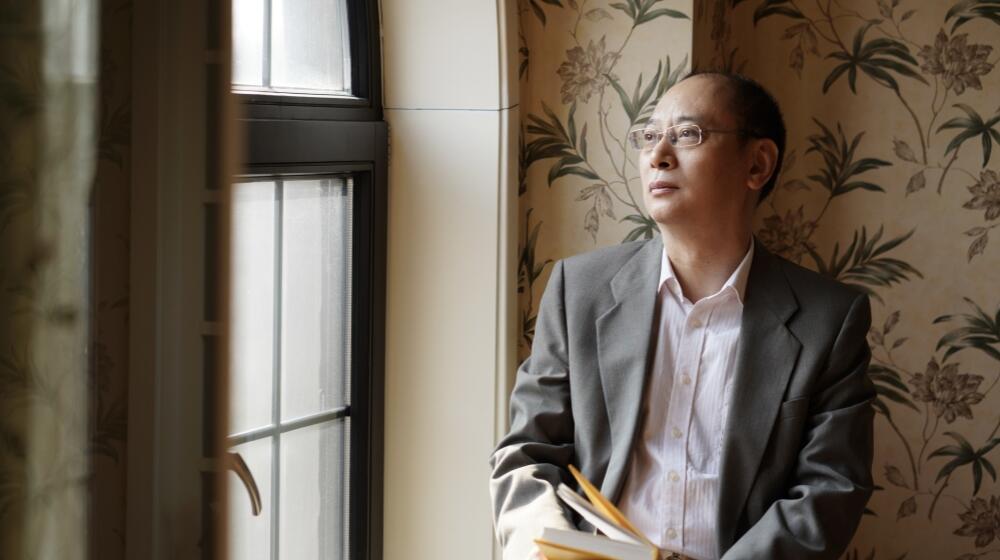No man marries to have a woman to fight with, instead they marry to live a happy life, but the violence destroys everything.
I am a researcher on sexuality and gender, and a social worker.
In 2010, I established the White Ribbon Hotline in China to offer free counselling services to people affected by gender-based violence. Globally, the "white ribbon" serves as a symbol, urging men to actively engage in ending violence against women.
From 'Growing Pains' to 'White Ribbon Hotline'
Why did I want to open a hotline to help survivors of gender-based violence? It is a long story.
In childhood, I was labelled as "sissy," as against what society deemed as "masculinity." As a result, I experienced marginalisation and became a target for bullying. I didn’t understand why I was treated like that until the 1990s, when I found a strong resonance with feminism and embarked on in-depth research on gender. Ever since then, I realised that "masculinity" was fundamentally a social norm, I wasn’t confused any more about my childhood experience.
In our society, masculinity is often defined as dominance, success, and assertiveness of men, while women are expected to be dominated. These social norms are deeply ingrained from birth and dictate behavioural expectations. My childhood experience of being bullied, and men’s violence against women, all of these are rooted in this dominant, toxic form of masculinity—a harmful social culture that overvalues men’s physical strength and encourages violent problem-solving.
This model of "masculinity" is detrimental to both men and women. Not only does it cause harm to others, but it’s also an obstacle to the personal growth and development of men. It makes it difficult for them to form genuine, intimate relationships and can have severe negative consequences for future generations.
A mother once told me that her four-year-old son had mimicked his father's behaviour by slapping her during an argument.
So, I wanted to do something for women by challenging the toxic "masculinity." The first idea that came to me was providing counselling services to perpetrators of gender-based violence. As a result, the White Ribbon Hotline was established.

The Development of White Ribbon: Hope in transforming men
Since 2010, the White Ribbon Hotline has served over 600 people every year. Unfortunately, for some abusers who asked for help, they failed to recognize their mistakes and instead they just sought help to save their marriages. Nevertheless, they reaffirmed my belief that men, ultimately, yearn for happiness in their lives. No man marries with the intention of causing conflict. I firmly believe that when men understand that violence only exacerbates problems rather than solving them, they become willing to change. By addressing this, we can effectively reduce and ultimately eliminate gender based violence.
In 2013, I launched the China White Ribbon Volunteer Network project with support of the United Nations Population Fund. The project has covered over 80 cities and owns over 5,000 dedicated volunteers. It remains the only programme in China consistently and successfully promoting male involvement in combating gender-based violence.
Over the years, the Chinese White Ribbon volunteers have provided vital group counselling services to domestic violence witnesses and abusers. Notably, the programme represents the first group counselling initiative for male domestic violence abusers in China following the introduction of China's anti-domestic violence law.
I still remember one man, who was a member of the first counselling group we held in 2014. He witnessed domestic violence when he was a child and attempted suicide. With support of the group, he joined us as a White Ribbon volunteer and participated in our work for the prevention and elimination of gender based violence. He told me the counselling transformed his life. While confidentiality means I can’t share more detailed cases, I remain undeterred, and know that even if we only have an impact on a few men with each group this is still valuable. I started out on this journey knowing it would be long-term and that persistence over time is essential for substantial progress, much like the steady accumulation of water.

"Male Morality Class" for better husbands and fathers
Through the White Ribbon project, I hope more men can take actions to reject violence, speak out when they see violence , and challenge dominant masculinity. In addition to counselling, I have led various awareness raising and behaviour change communication initiatives, including the "Good Partner, Good Father Workshop," the play "Men’s Monologues," the "Full Participation Father Reading Club," the "White Ribbon Film Festival," and "Men Tell Stories."
One notable initiative is the "Good Partner, Good Father Workshop," also known as the "Male Morality Class." This programme got a lot of attention due to its unconventional approach. I chose the name on purpose, knowing it would elicit curiosity or scepticism. I want to catch people's attention and deepen the understanding of the crucial role men can play in the fight against gender-based violence.
In 2015, I organised the first "Male Morality Class" workshop. It generated a lot of public attention but the initial response was poor - only two men signed up. In the public’s perception, the "Male Morality Class" was mainly about men using basketballs to experience pregnancy. But the workshop's curriculum extends far beyond this. It actively engages men in activities that may be absent from their daily lives, such as child care and supporting women during childbirth. By fostering healthy relationships and sharing domestic labour, men can become role models and embrace gender equality.
In 2023, the "Male Morality Class" received 57 applicants nationwide and selected nine of them who have experience in gender studies as "Male Morality leaders". Together, we covered essential topics like challenging stereotypes, addressing harmful masculinity, taking on responsibility for household and family care tasks, and combating domestic violence. These leaders will serve as instructors, recruiting more participants locally and fostering self-discovery and active engagement. My goal is to create a ripple effect, gradually impacting more people.

Over the past decade, my commitment to equality and the eradication of gender-based violence has remained steadfast. From publishing over 70 relevant books, organising numerous lectures and training sessions on engaging men in the fight against violence, to my recent endeavour in youth sexuality education and the creation of children's picture books and poems, I have mainstreamed gender equality and anti-domestic violence into my work.
As a pragmatic scholar, my aspirations were once grand, to transform the whole society. Yet, I have discovered profound fulfilment in the ability to touch the lives of individuals on a personal level. For each man who embraces the significance of active participation and the importance of equality, there exists the potential for one more contented family in the world, propelling us closer to the realisation of gender equality.


